By Kim Tremblay, Esq.
On January 27, 2020, the U.S. Supreme Court lifted an injunction on the Trump administration’s public charge rules. Last fall, through the Department of Homeland Security (“DHS”), the administration sought to change the regulations related to whether an immigrant applying for admission to the U.S. is likely to become a public charge and rely on government services. These immigrants include individuals applying for admission to the U.S. or lawful permanent residence, or trying to change or extend their nonimmigrant status.
Lawsuits were filed before the rule went into effect on October 15, 2019. Lower courts issued nationwide injunctions preventing the rule from coming into effect. However, the Trump administration appealed to the Supreme Court to be able to implement the rule while the lawsuits are pending and the Court lifted the injunction, except in Illinois, where it remains in effect. Although lower courts may ultimately hold that the regulations were improperly issued, the rule will go into effect for now on February 24, 2020.
Under the new regulations, DHS adjudicators will consider the totality of the circumstances related to whether a person is likely to become a public charge. This analysis will go beyond whether the person’s sponsor meets the affidavit of support requirements for immigrants applying for permanent residency. USCIS will now consider the immigrant’s receipt of public benefits, age, health, family status, assets, resources, financial status, education, and skills when making a determination.
The agency is only supposed to consider public benefits received by the immigrant and not by family members. This rule does not apply to applicants for U nonimmigrant status, victims of trafficking, asylees, refugees, Special Immigrant Juveniles (“SIJS”), or individuals applying for status under the Violence Against Women Act (“VAWA”).
In addition, the Department of State (“DOS”) had also issued new directives implementing a new analysis for the public charge rule in 2018, widening the spectrum of what public benefits can be considered when determining whether someone is likely to become a public charge. Unlike the DHS rules, the DOS rules can consider public benefits that family members have received. DOS has already begun to deny applicants abroad under this new policy and should soon release a new form that applicants will need to fill out before attending a consular interview.
If you have any questions or concerns about this new rule and its potential effects on your family and your situation, please do not hesitate to call us for a consultation or to speak with your attorney if you already have a case open with our firm.
We will be contacting all Logan Firm clients impacted by these changes to discuss their circumstances and whether we need to change their case strategy. In addition, we will give a short presentation on March 7, 2020 at 1:00pm and met with existing clients individually afterwards. The presentation will be at Boulder Valley Christian Church, 7100 S Boulder Rd, Boulder, CO 80303. https://www.google.com/maps/place/Boulder+Valley+Christian+Church/@39.9846273,-105.1810781,14.2z/data=!4m5!3m4!1s0x876bf2f04fbefc1f:0xf9a2bb8b7adc9c74!8m2!3d39.9850893!4d-105.1867016
